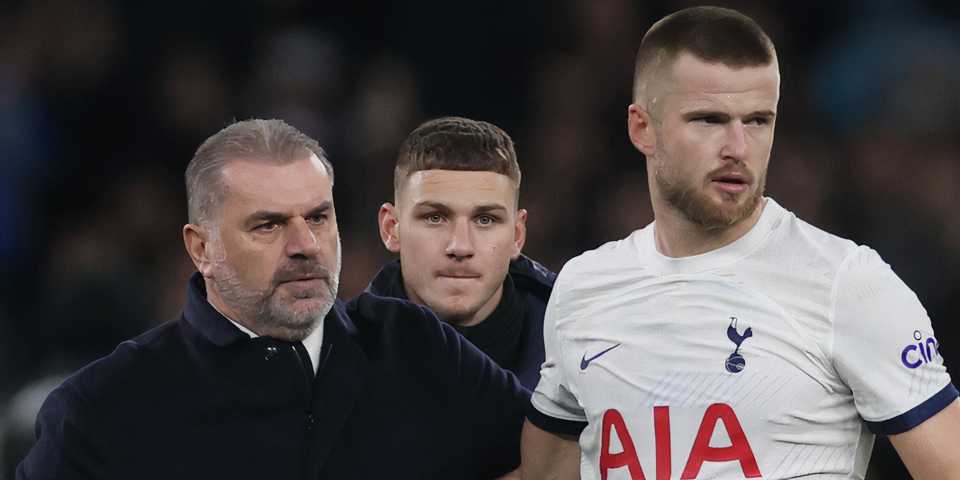When Ange Postecoglou first walked through the doors at Hotspur Way, he brought with him a refreshing breeze of optimism that had been sorely missing from Tottenham’s training ground. The charismatic Australian, fresh from domestic dominance with Celtic, promised to revolutionize Spurs with his brand of fearless, attacking football.
Early signs suggested he might deliver on that promise – an unbeaten run stretching ten matches at the start of his tenure momentarily had Tottenham fans dreaming of a new golden era. That initial burst of positivity now feels like a distant memory as the club finds itself mired in one of its worst Premier League campaigns in recent history.
The statistics make for grim reading. Seventeen defeats from thirty-two matches leaves Spurs languishing in fifteenth position, a mere two points above the relegation scrap. Sunday’s 4-2 capitulation at Molineux served as the latest indictment of Postecoglou’s increasingly flawed methods.
What began as admirable commitment to an attacking philosophy has descended into tactical naivety of the highest order, with opponents routinely exploiting the same vulnerabilities week after week. The Australian’s refusal to adapt his approach, despite mounting evidence of its shortcomings, has transformed him from revolutionary to relic in the space of eighteen months.

Eric Dier’s revealing comments about Postecoglou’s training methods, made during an interview with Gary Neville shortly after his departure to Bayern Munich, take on new significance in light of Tottenham’s current predicament.
When asked if the Australian was the most tactically astute coach he’d worked with, Dier’s response was telling: “Interestingly, he doesn’t do barely any tactical work. What he does is, every single training drill, from Monday to Friday, is drawn up to represent the way he wants to play.” This unconventional approach, while novel during the early honeymoon period, appears increasingly inadequate for the rigors of Premier League football.
The absence of structured tactical sessions manifests itself in Tottenham’s chaotic performances. Defensive shape disintegrates under pressure, midfield transitions lack coordination, and attacking patterns break down when Plan A meets resistance.
Postecoglou’s reluctance to appoint a set-piece specialist – another well-documented idiosyncrasy – compounds these issues, with Spurs conceding fourteen goals from dead-ball situations this season alone. In modern football’s data-driven landscape, where marginal gains separate success from failure, such willful neglect of fundamentals borders on professional negligence.
Comparative Analysis of Postecoglou’s Tottenham Tenure
| Metric | First 10 Games (2023/24) | Subsequent 54 Games | Decline |
|---|---|---|---|
| Points per game | 2.6 | 1.3 | 50% drop |
| Goals conceded per game | 1.1 | 1.9 | 73% increase |
| Clean sheets | 3 | 5 | From 30% to 9% |
| Defensive errors leading to goals | 2 | 17 | 750% increase |
| Set piece goals conceded | 1 | 13 | 1200% increase |
The regression becomes even more alarming when examining specific aspects of Tottenham’s play. Their high defensive line, once hailed as brave, now appears suicidal without coordinated pressing triggers.
Goalkeeper Guglielmo Vicario’s confidence has evaporated behind a constantly exposed back four. Midfielders routinely find themselves outnumbered and overrun as opponents exploit the enormous spaces between Tottenham’s lines. These aren’t isolated incidents but systemic failures stemming from inadequate preparation.
Postecoglou’s training ground philosophy represents a fundamental miscalculation of what’s required to succeed at Premier League level. While his holistic approach – immersing players in his footballing ideology through every drill – might work in less demanding environments, England’s top flight leaves no room for such idealism.
The league’s relentless competitiveness demands meticulous attention to detail, tailored game plans for specific opponents, and the flexibility to adjust when systems malfunction. None of these elements feature prominently in Postecoglou’s management toolkit.
As pressure mounts, the Australian finds himself at a crossroads. Persisting with his current methods risks complete disintegration of both results and player belief. Adapting his approach would require compromising principles that have defined his managerial identity.
With Daniel Levy reportedly assessing potential replacements – including Bournemouth’s highly-regarded Andoni Iraola – time is running out for Postecoglou to prove he can evolve.
Tottenham’s predicament serves as a cautionary tale about the Premier League’s capacity to expose even the most charismatic of visionaries. Postecoglou arrived promising entertainment and adventure, but has delivered only chaos and underachievement.
Unless he can demonstrate an ability to blend his attacking ideals with pragmatic solutions, his tenure in North London may soon join the long list of failed projects at a club that has forgotten what sustained success feels like. The coming weeks will determine whether this is merely a difficult chapter in Postecoglou’s Spurs story, or its disappointing conclusion.
